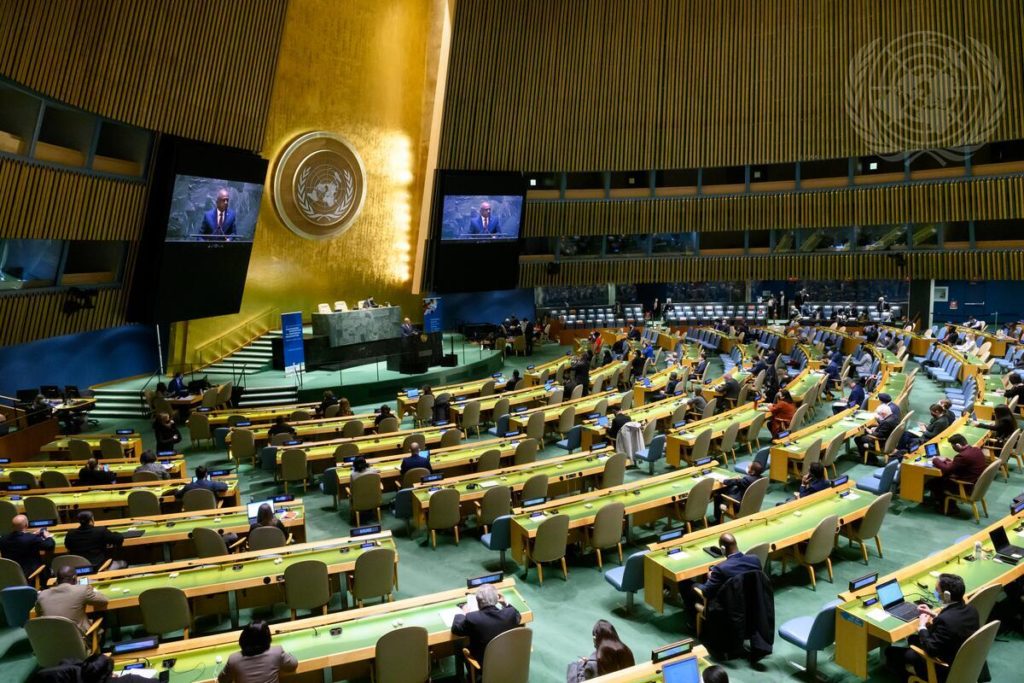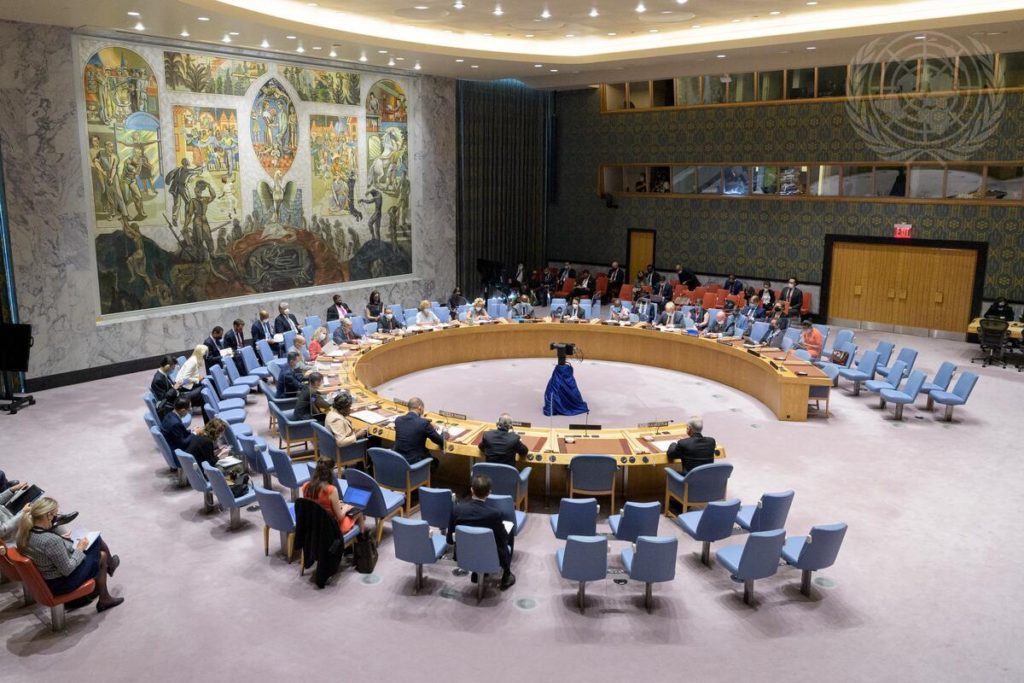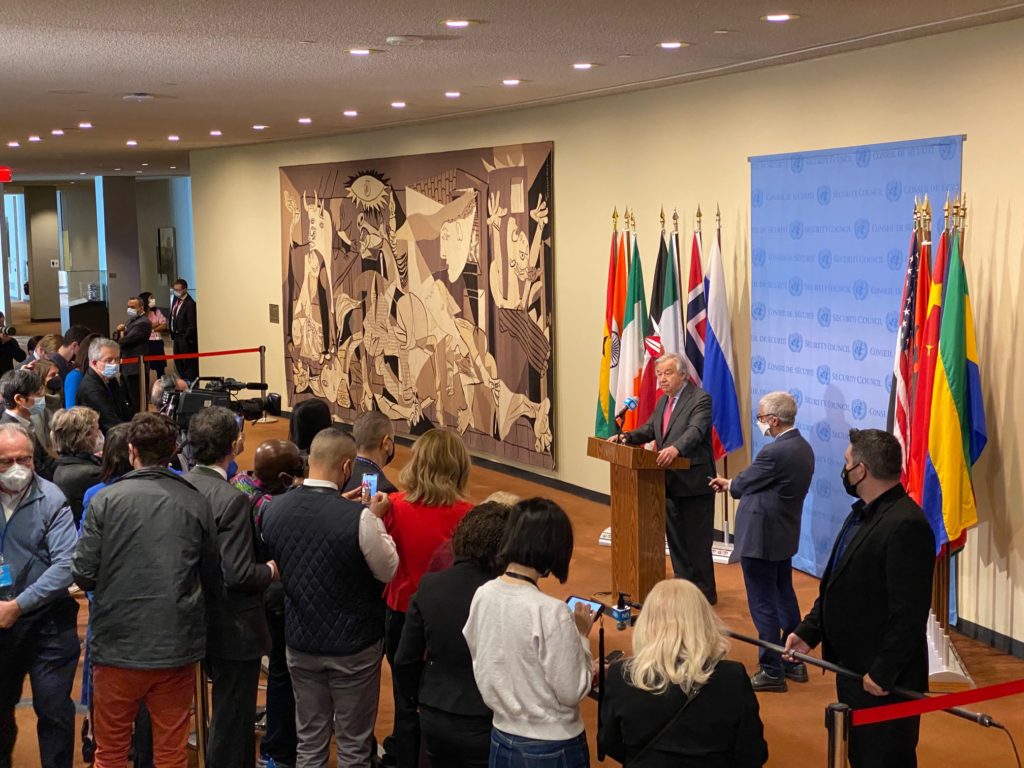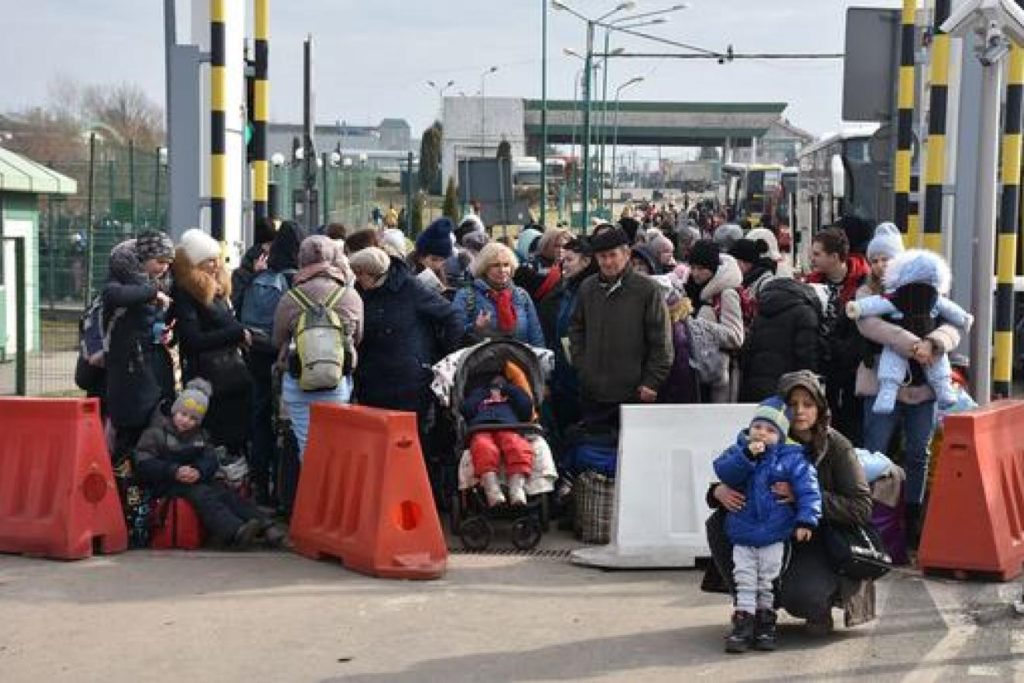UPDATE: UN calls on Russia to end war in Ukraine; for protection of civilians, health workers and humanitarian aid
By J. Tuyet Nguyen
New York, March 24 – The United Nations General Assembly voted 140 against five to demand an immediate end of hostilities by Russian military forces in Ukraine, in particular against civilians and call for full protection of humanitarian and health personnel, journalists and persons in vulnerable situations, including women and children.
The five countries voting against are: Russia, Belarus, Syria, North Korea and Eritrea. A total of 38 countries abstained
The resolution adopted by the assembly demanded that “all parties” protect civilians fleeing the war and allow them unhindered access to humanitarian aid and personnel. It condemned all violations against international humanitarian law and violations and abuses of human rights and called on “all parties to the armed conflict to strictly respect international humanitarian law.”
The resolution called upon member states to fully fund the UN flash appeal for humanitarian response in Ukraine and the regional response to refugees.
The Russian military invasion of Ukraine, which started on February 24, has forced millions of people out of their homes including more than 3.5 million have taken refuge in neighboring countries, hundreds of deaths and vast destructions of properties.
The vote took place during a resumed special emergency session of the 193-nation assembly at the request of 22 countries to discuss the resolution entitled “Humanitarian consequences of the aggression against Ukraine.” The document called for an immediate cease-fire and urgent humanitarian aid to help desperate civilians caught under heavy bombardments and dire conditions that UN Secretary-General Antonio described as “appalling human suffering and destruction in cities, towns and villages. “
The UN chief said in an address to the UN Security Council on Ukraine March 22: “The terrorizing of civilians through systematic bombardments, the shelling of hospitals, schools, apartment buildings and shelters… all of it is intensifying — getting more destructive and more unpredictable by the hour. Ten million Ukrainians have been forced from their homes and are on the move. “
“But the war is going nowhere, fast,” he said. “The only outcome to all this is more suffering, more destruction, and more horror as far as the eye can see. The Ukrainian people are enduring a living hell – and the reverberations are being felt worldwide with skyrocketing food, energy and fertilizer prices threatening to spiral into a global hunger crisis.”
Guterres called for a cease-fire: “There is enough on the table to cease hostilities – now … and seriously negotiate — now. This war is unwinnable. Sooner or later, it will have to move from the battlefield to the peace table. This is inevitable.”
The UN General Assembly condemned Russian invasion in previous emergency session
The assembly held the first emergency session on February 28-March 2 and adopted a resolution condemning the Russian invasion of Ukraine. A total of 145 countries voted in favor of the condemnation resolution, five countries voted against (Russia, Belarus, Syria, North Korea and Eritrea) while 35 countries abstained.
The resolution adopted by the assembly condemned Russia’s “special military operation” against Ukraine and “deplored in the strongest terms the Russian Federation’s aggression against Ukraine” in violation of the UN Charter. The resolution called for an immediate and complete cease-fire and for the immediate withdrawal of Russian military forces from Ukraine.
The resolution also condemned all violations of international humanitarian law and violations and abuses of human rights, and it called on all parties to strictly respect relevant provisions of international humanitarian law.
More than 3.5 million refugees
The UN refugee agency (UNHCR) said more than 3.5 million people have fled Ukraine to take refuge in neighboring and other countries, including about 2 million in Poland, since the Russian invasion started on February 24. It said the high number of refugees demanded massive needs in order to survive.
“This is really another tragic milestone for the people of Ukraine and it’s been achieved in just under one month,” said Matthew Saltmarsh, spokesperson for UNHCR.
The International Office for Migration said an estimated 6.5 million men, women and children are forced out of their homes inside Ukraine because of the war in addition to those who became refugees. The office said many of those internally displaced people are particularly vulnerable, pregnant and breastfeeding women, elderly persons, those with disabilities, chronic illnesses and people directly affected by violence.
“The scale of human suffering and forced displacement due to the war far exceeds any worst-case scenario planning,” IOM Director General António Vitorinosaid.
The World Health Organization said the refugees need urgent assistance for chronic health and mental trauma.
“As you can imagine access to health care in Ukraine is very restricted,” Dr Paloma Cuchi said. “And on top of that, refugees are coming from a long, difficult and dangerous journey, you know, until they arrive at the border of Poland. Children are travelling for days without proper food, without the proper water. They are tired, they are worried.”
“There is a tremendous number of senior refugees…that have been without their medications for days, they come with decompensated diabetes, with blood pressure with other health problems, and of course, we have pregnant women, who are without prenatal care.”
United Nations correspondent journalists – United Nations correspondent journalists – United Nations correspondent journalists
United Nations journalism articles – United Nations journalism articles – United Nations journalism articles





